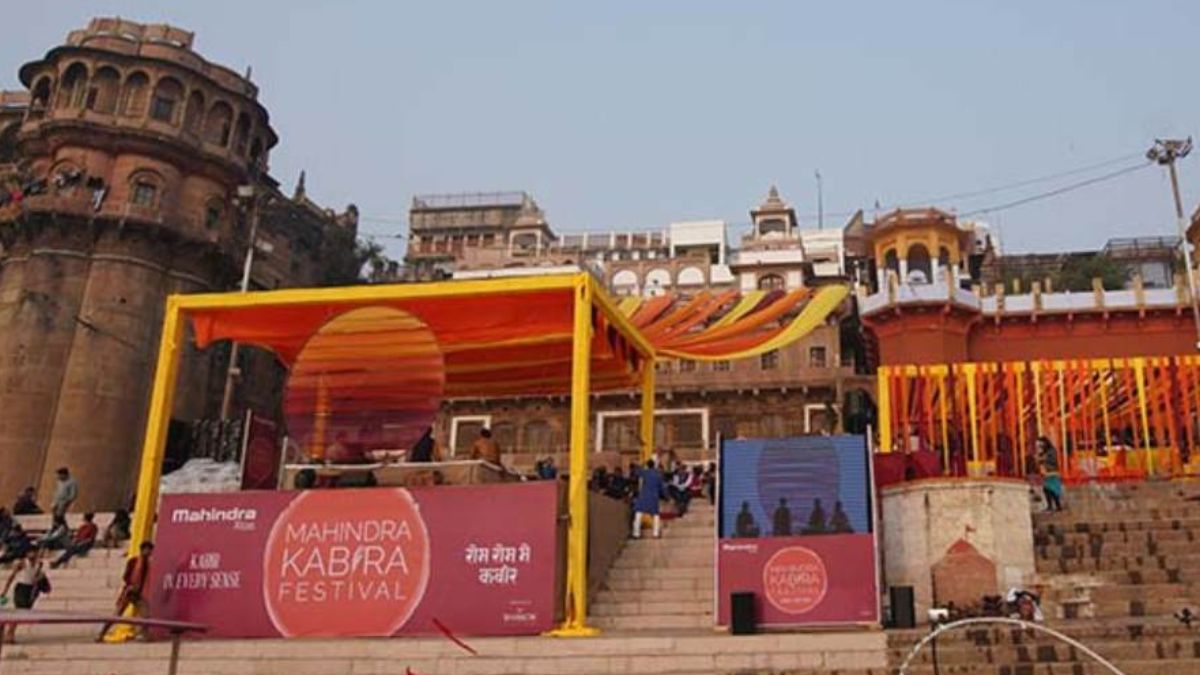Varanasi’s ghats to resonate with legacy of Kabir as Mahindra Kabira Festival returns
 Courtesy: Teamwork Arts
Courtesy: Teamwork Arts
The ancient city of Varanasi is all set to celebrate the timeless legacy of 15th-century mystic-poet Kabir as the Mahindra Kabira Festival returns for its ninth edition, from December 19 to 21. A rich tapestry of performances, talks, heritage walks, and cultural experiences will immerse attendees in the life, philosophy, and enduring influence of the iconic Bhakti poet, who once walked these very ghats and lanes, weaving his immortal dohas that continue to resonate across centuries.
The festival, by the Mahindra Group and produced by Teamwork Arts, will feature performances by a diverse range of artistes such as the celebrated Rajasthani folk singer Mahesha Ram, the Carnatic progressive rock band Agam, the musician-storytelling group from Awadh Dholak Rani, and the self-trained qawwali group from the Kumaon hills Rehmat-e-Nusrat, among others, representing a confluence of folk, fusion, and devotional traditions from across India.
“The vision behind the festival is to take the philosophy of Kabir to as many people as possible,” Jay Shah, vice president, cultural outreach at the Mahindra Group, told The WEEK. “And since the audience is so diverse, we have to ensure that our programming isn’t single-tracked. So, we go beyond the obvious and feature ridiculously different forms of art so that more and more people can be brought in. Therefore, you see an Agam, a Dholak Rani, and the Marathi singer Rahul Deshpande.”
Despite Kabir having been born and lived in Varanasi, his legacy has often been overshadowed by the city’s larger Shaivite traditions. “We started the festival as a gift from the Mahindra Group to the city of Benares (Varanasi), something like bringing Kabir back home,” says Shah. He admits that the organisers did not anticipate such a massive response from the very first edition, which drew an impressive 30,000 visitors to the city’s iconic Assi Ghat. Since then, the festival has moved to other locations such as the Shivala Ghat.
Speaking on the idea behind a festival on Kabir, Shah highlights the enduring relevance of the poet’s thoughts, ideology, and philosophy. “His teachings remain especially important today, in such a polarised world. What he propagated essentially boils down to common sense. He’s not offering a complex, philosophical understanding of life, but simply telling us to be true to ourselves and to God — however we choose to call the divine, whether Allah or Ram. As a brand, we felt that Kabir’s ideology resonated closely with our corporate values,” he says, highlighting the theme of inclusivity, and emphasising that, “this isn’t a corporate social responsibility (CSR) for the company.”
And on the role of corporates in promoting art and culture, Shah says: “Earlier we had the Czars in Russia, Medicis in Italy, and our very own rajas and maharajas, who all are long gone. And the governments are too occupied with running the economy. Then the mantle of culture rests on the corporates.”
Society